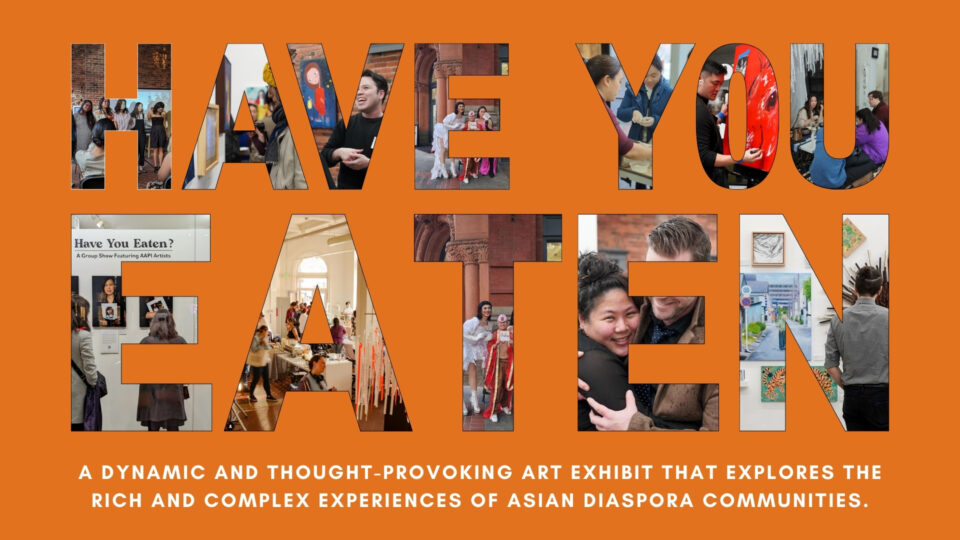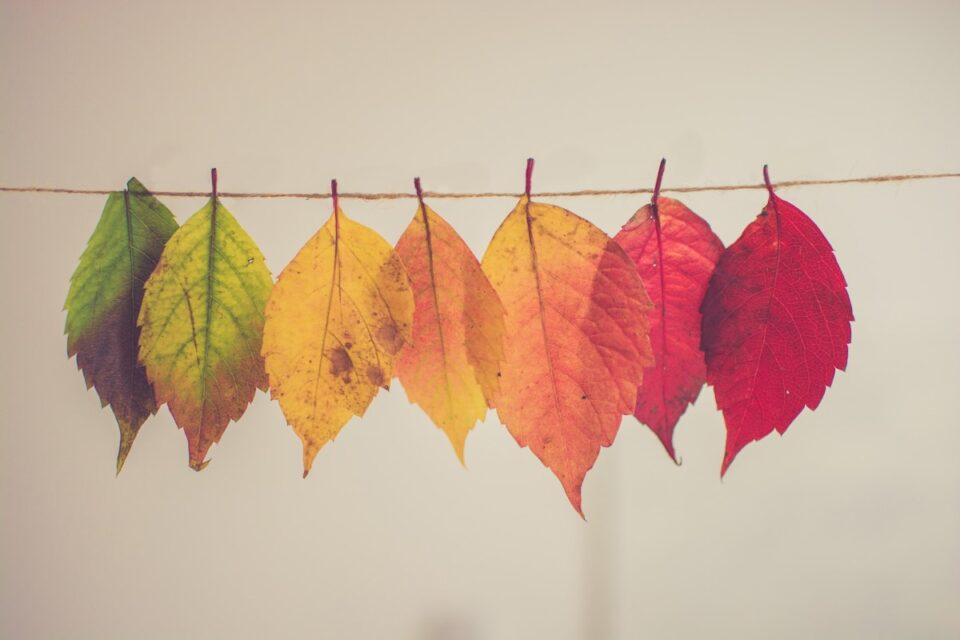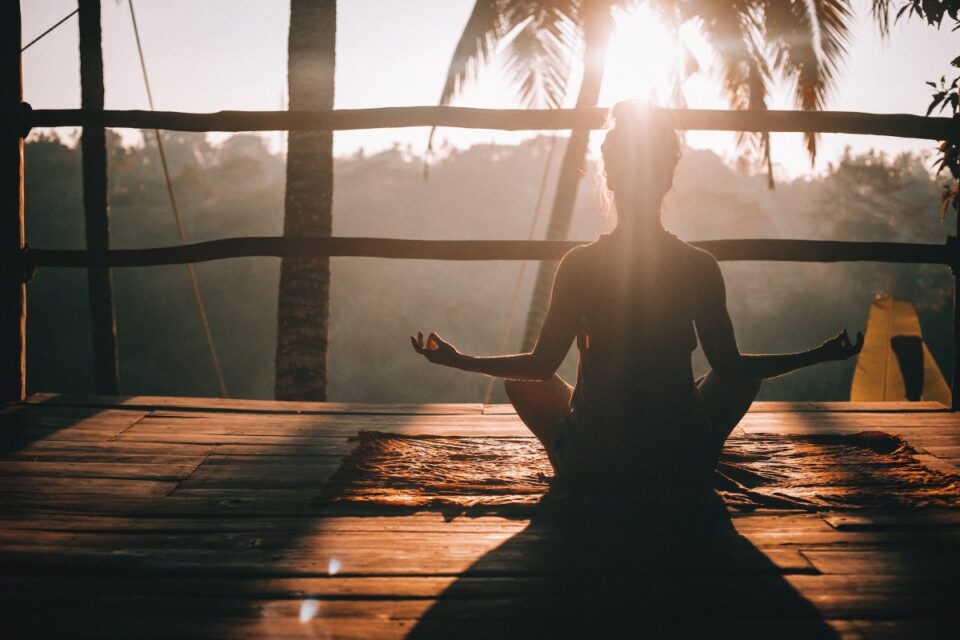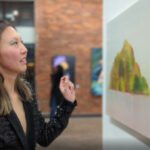
Annah’s Reaction to Name Story Portrait
January 18, 2023
Name Story at Have You Eaten Meryenda
May 8, 2023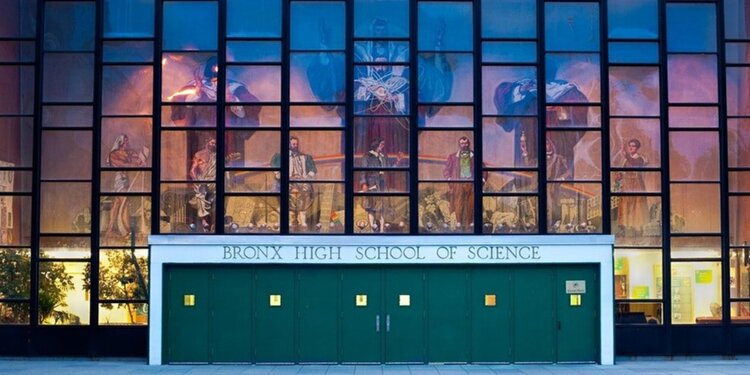
Shalom! That’s Hebrew for hello. I know this because I took Hebrew as a language option in middle school. In fact, at least half of the kids in my Hebrew class were Korean American and came from my predominantly immigrant neighborhood outside the attendance area of the school.
When I was a little girl, my dad drove me to a high school I had never seen before. I sat bewildered as he parked in front and told me he wanted me to go there. When I got older, I discovered that he had taken me to the prestigious public high school, Bronx High School of Science, which was only one of 3 in NYC that you had to test to get into. It was a gateway to opportunities afforded to the more privileged and not afforded to struggling immigrant families like mine. Going to this school symbolized hope for our community and opportunities for a brighter future. But there was a problem―the middle school in my district was terrible and lacked the academic requirements necessary to successfully prepare me for the entrance exam.
When I was growing up, I was deeply entrenched in the Korean American community which we had through church. It was where I hung out with other kids just like me, where I could be "normal" and where my parents could find cultural commonality and belonging in a country that felt exclusionary. It was through this community that our family learned about a workaround to attend a high quality middle school outside our attendance area, one that specifically prepared kids to get into Bronx Science. All we had to do was request Hebrew as a language option in an affluent Bronx neighborhood called Riverdale. They offered Hebrew and our attendance area school didn’t.*
As you might imagine, going to Bronx Science paid off for all of us immigrant kids. We went to school with kids from all over NYC, many of them privileged, under the tutelage of accomplished teachers. Nearly 100% of kids wo went there graduated and went on to prestigious colleges. All of us who followed this route were able to leave our struggling neighborhoods to move on to more privileged lives.
When you come from a marginalized community, the collective matters because it’s how you learn to survive.
When you come from a marginalized community, the collective matters because it’s how you learn to survive. Had I not known about taking Hebrew to get into a better middle school, I wouldn’t have gotten into Bronx Science no matter how good a student I was because I didn’t have access to the academic content necessary to pass the entrance exam. Looking back, I realize that the Korean community growing up taught me that caring for the collective, watching out for all the kids in the community, ensured that we all rose out of our disadvantaged class together. This lesson isn’t something I’ve really thought about until recently because I’d spent so much of life distancing myself from that world. As much as the community was an important part of what made me, there were also many toxic aspects of it as well. Fear of rejection, shame, and collective judgment were also characteristics of the community which meant growing up with family secrets and learning to present publicly as false and perfect versions of ourselves. Not only was there harm coming from within the community but also outside of it. Experiences with racism and prejudice meant that being attached to a community of color felt unsafe. So I left.
The last five years or so have been about deeply entrenching myself in the opposite side of collectivism because individualism is where I needed to figure out who I was outside of all the identities I carried. After swimming in the deep waters of just the self, I've come to realize how problematic this is because it places the burden of creating a better world solely on the individual while ignoring bigger systemic problems like racism, ableism, patriarchy, etc. in which we all play a role and have a responsibility to dismantle together.
I realize it’s time to go back home to the collective but this time, on my terms.
After swimming in the deep waters of just the self, I realize how lacking it is. It is a problematic place to stay because it places the burden of creating a better world solely on the individual experience while ignoring the experiences of others and bigger systemic problems...
There are many shifts happening in my life and in my family and I know many of you are also experiencing something too. These shifts are also reflected in the state of our country which is in a battle over its direction and who gets to belong. We’re also living through an unprecedented mental health crisis post pandemic, with our children suffering the most, as we all learn to live in an endemic state. The pandemic itself didn’t necessarily cause all of these problems but just brought to light the things our society ignored and buried from public view. I don’t feel like any of us can just stay in the lane of individualism anymore. Individualism is a very Western/Eurocentric and privileged approach to society―a view afforded only to communities who are not grappling with survival. Tricia Hersey of the Nap Ministry calls for community-care over self-care in her book Rest in Resistance. This deeply resonates with me. We can approach the world through collectivism without losing ourselves in the process. Women of color are in a unique position to understand that these things don’t have to be mutually exclusive because we’ve experienced both and can recognize the parts that are harmful versus helpful.
There are many changes coming to Judy Lee Photography.** If you know about My Name Story project, you’ll know that I’m on a name journey so my name will be changing in the future and along with this the business and work I am doing. It’s a transitional space brought on by a family crisis outside of my control, as it often is, filled with embracing grief and darkness and getting clear on the role I want to play in creating a more socially just world while challenging beliefs our society has about mental health and healing.
If you’ve been following me for years, I thank you for coming on this journey with me and hope you will be open to approaching the world in a different way. Changing the world means taking a good, hard and sometimes painful look at ourselves and the culture we live in and help sustain, just as we’ve done on our self-healing journeys. But now, it’s time to look beyond ourselves and recognize that we need to do more to take care of each other, together.
*I heard years later that the attendance area middle school I didn't go to started offering Hebrew because of the demand, effectively cutting off the pathway for immigrant families searching for better educational opportunities. This is an example of a tone-deaf and and non-representative administration making decisions that caused unintentional harm to a community of color. They were unable to look beyond their own understanding of why people make the choices that they do. This is why inclusion and true representation matters. Obviously, no one chose Hebrew as their language elective at this school and they eventually dropped it.
**This article was written as a newsletter as I closed Judy Lee Photography and transitioned to Social Healing Space.

